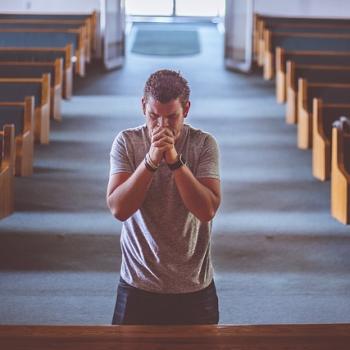Second, the significance of the ruling will also depend on how many universities actually attempt to adopt and enforce all-comers policies. French and McConnell are surely right that the practical and political obstacles are significant. Once it is understood that no student group can exclude any student for any reason, the leaders of student organizations may protest en masse. This could lead university officials to carve out exceptions, or to give a wink and a nod to those who exclude students in ways that the university leadership does not find objectionable. Yet then it will be difficult to maintain that the all-comers policy is not being applied in a selective and discriminatory manner.
Yet universities will only develop all-comers policies if they interpret the ruling narrowly, i.e., if they understand that the ruling is not an affirmation of religious non-discrimination policies. There is cause here for concern. McConnell claims that "decisions of this sort" are "often interpreted as much broader than they actually are on the pages of the ruling." If this is so, then university student groups can expect more anti-discrimination policies that will infringe upon their rights of expressive association, and this will "lead to heightened tension and increased litigation."
Third and finally, the long-term consequences of CLS v. Martinez will depend on whether it reflects a trajectory of judicial drift toward the view that there are no constitutional constraints against the government granting and withholding the common resources of civil society as a way of incentivizing the beliefs it prefers and disincentivizing the beliefs it does not. Again this view finds a representative in Hamilton: "if the government decides that there will be no discrimination along certain categories, the groups that get the benefits from the government are going to have to abide by those rules."
The Ginsburg ruling is careful to note the educational context in which an all-comers policy can be argued (wrongly, I think, but not unreasonably) to serve the interests of mutual edification. Yet it would not be difficult to argue that those same interests serve society at large. And if the ruling is interpreted broadly to affirm government penalties for religious groups that hold to certain religious beliefs regarding leadership and human sexuality, then the educational context is no longer significant.
If common religious beliefs are counted as discriminatory, and the state is viewed as having a legitimate interest in suppressing such discrimination, then religious groups may still be permitted to believe what they want to believe, but not without large-scale government manipulation that rewards the beliefs that are favored and punishes the beliefs that are disfavored by those in power. The consequences would obviously be profound. Could high school Bible studies be denied on-campus meeting spaces because they do not permit non-Christians to lead the studies? Could churches that do not ordain women or homosexuals be denied tax-exempt status, because the state is "subsidizing discrimination"? Many have already argued as much.
This may sound like hyperbole, and presently the political resistance to such a state of affairs would be significant. But such is the nature of slippery slopes: the change is not extreme, until it is. It would be better if the government did not get in the business of incentivizing some religious beliefs and punishing others in the first place.
It is also important to attend to the broader context, in which an orthodox Christian standpoint is being pushed aside as backward, discriminatory, and inimical to education, in favor of a more liberal, less exclusive attitude toward religious faith and sexual orientation. Does anyone believee that the brahmins of Hastings would have taken the same action if the ideologies had been reversed? Yet the ironic fact is, in taking the action they did, they performed the very act they claimed they sought to prevent. The purportedly exclusionary group was excluded, and the purportedly open-minded group were not so open-minded after all.
We need to move beyond the notion that exclusion is always and in all circumstances wrong. Over recent centuries, in this country and around the world, there has been a laudable movement to overcome invidious forms of discrimination, such as discrimination on the basis of skin color or sex. Yet a religious group should be able to shape its leadership according to its own faith, and this should not be regarded as invidious discrimination. Christian churches throughout the ages have required members to affirm creeds or statements of belief or even codes of conduct. This is intrinsic to the formation of religious communities, a way in which communities of faith define what is most essential to who they are, and it should be respected and not manipulated by the state.
For more articles like this, see the Evangelical Portal.





